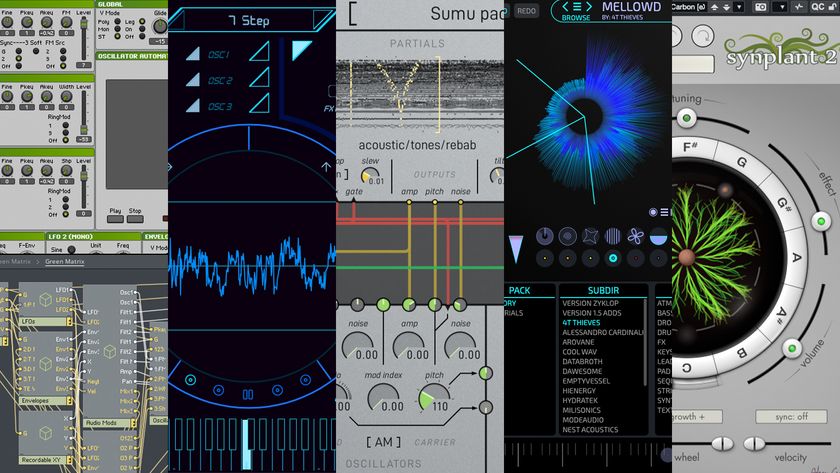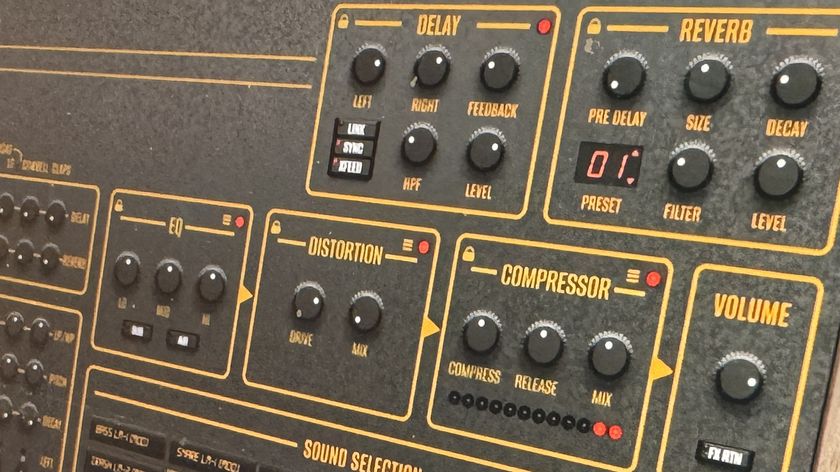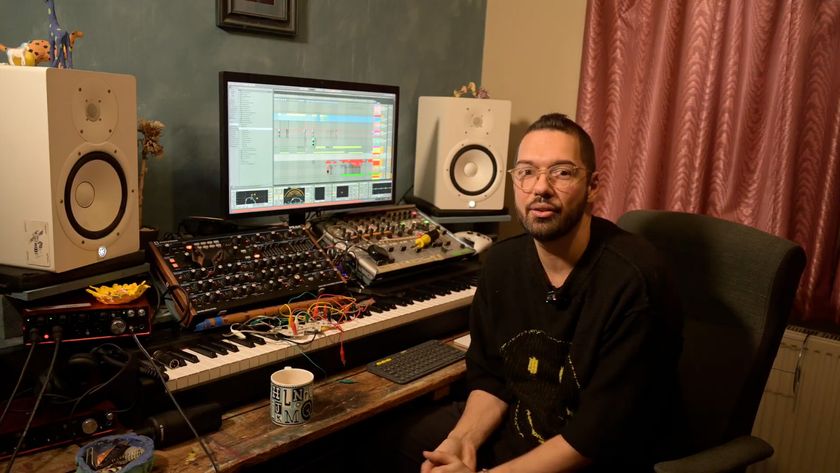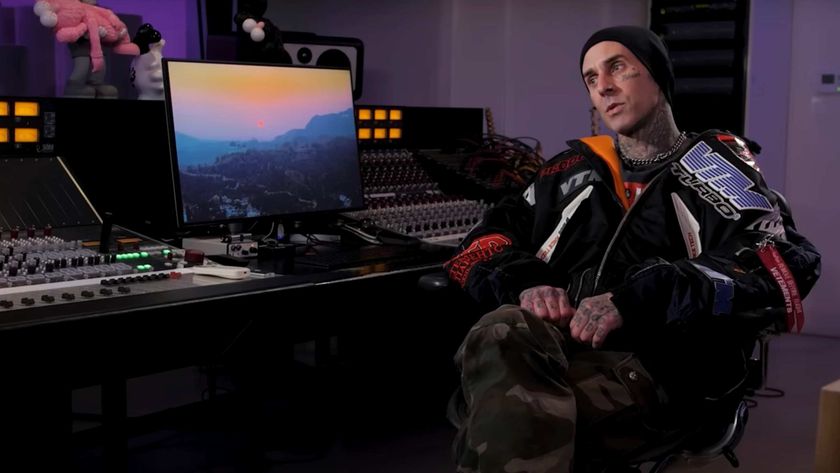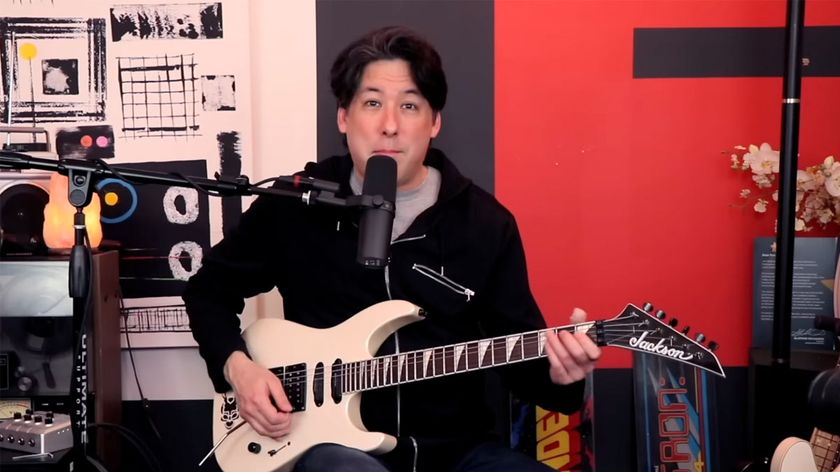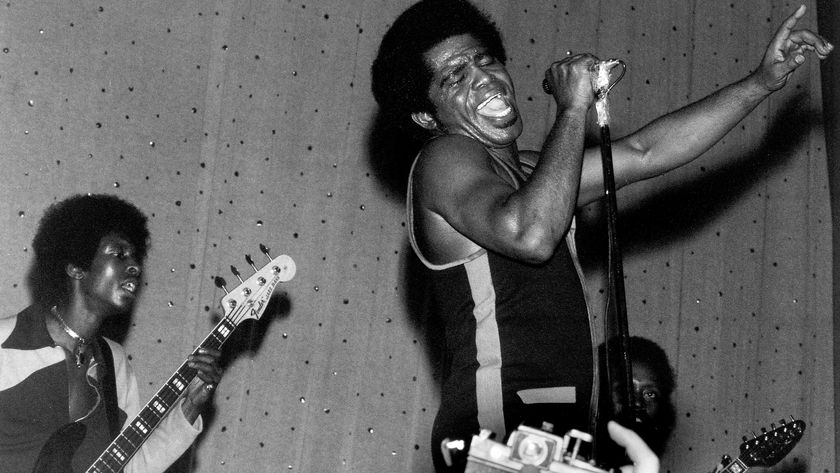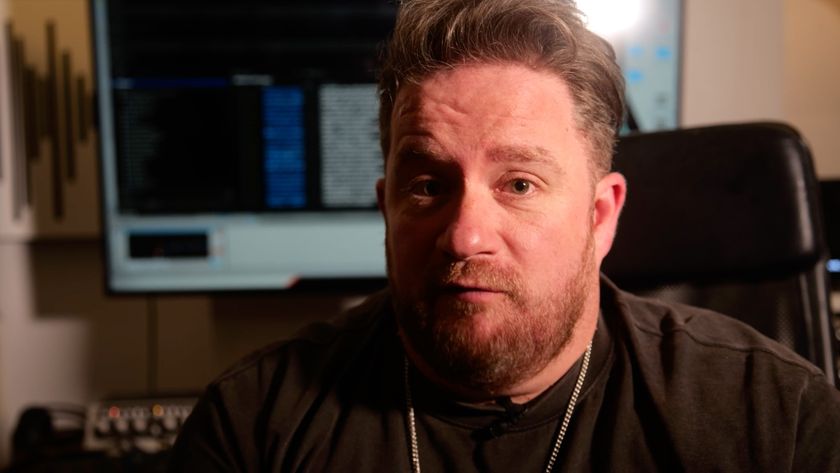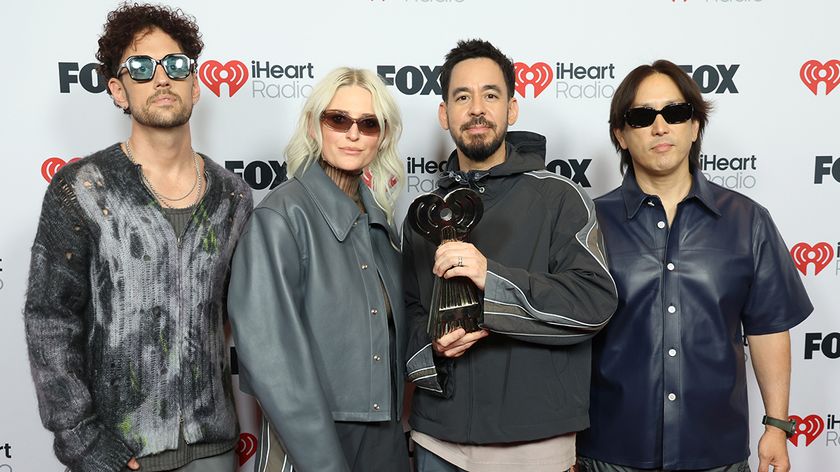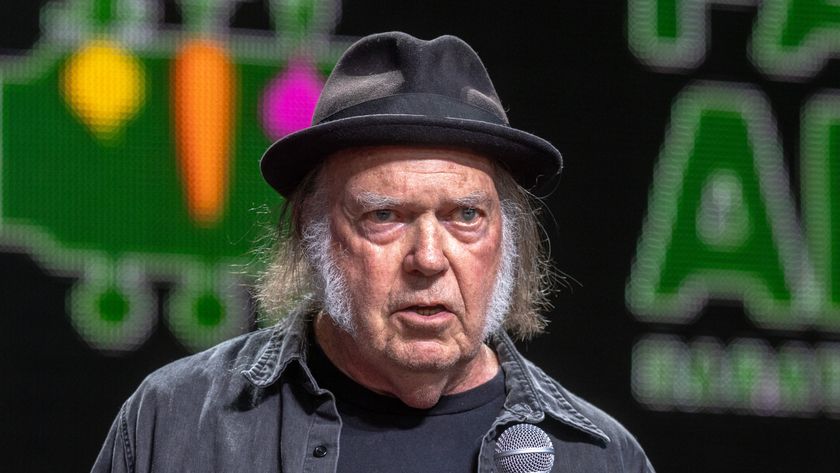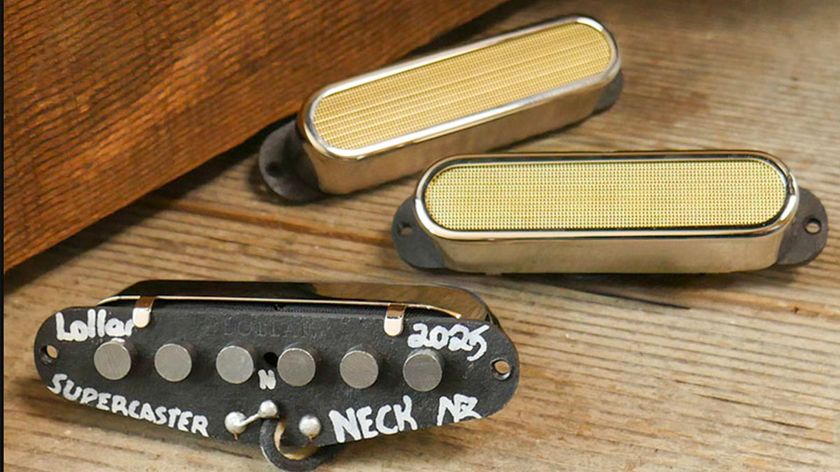"I love artists who have a rawness to their sound": Kit Grill thinks that "if you over-produce, you can lose the essence of what makes an idea great"
Kit Grill’s most recent release, Swimming in Honey concludes a journey of bold aural adventuring with the addition of vocals to the mix

After a decade of making experimental, multi-hued records, Kit Grill’s most recent release, Swimming in Honey concludes a journey of bold aural adventuring with the addition of his vocals to the mix.
We spoke to Kit to hear more about the making of this atmospheric, nuanced listening experience.
Firstly, let’s talk about last year’s Swimming in Honey. A really absorbing listen, packed full of interesting sonics and mesmerising arrangements. How did the ideas for this album originate?
“This was my seventh record and it became a bit of a turning point for me. I think I was getting a bit bored of making instrumental music. I was writing arrangements that I thought vocals would improve or develop the sound for both the listener or myself. Rather than outsource, I jumped in the deep end and gave it a go myself.”
Your voice is quite upfront. At times, it’s almost spoken-singing, particularly on the track Country Boy. When did you start doing that, and what prompted it?
“To be honest, it’s all just quite intuitive. It was my first time singing and using vocals and then trying to work with them in the mix. I think that’s why they’re quite upfront. I spoke with an engineer who gave me some tips. It sounded pretty terrible before. I was basing my approach on online tutorials and wasn’t really getting anywhere. A couple of hours working with the engineer totally helped in every way. He took a lot of things off and told me to do multiple things that changed everything. I think that’s why it sounds upfront. I listened back to it very intently.”
Despite its sonic dynamics, Swimming in Honey also quite minimalist from an arrangement point of view, tracks like Crimson and Lying in the Rain are economical and tight, yet there’s still room for quite elaborate synthetic melodies. What were your go-to tools?
Get the MusicRadar Newsletter
Want all the hottest music and gear news, reviews, deals, features and more, direct to your inbox? Sign up here.
I’ve got a rule where I try to limit myself to not too much stuff
“I’ve got a huge bank of drum machines, sourced from an online community of people who upload them themselves. You basically pay to get .wavs of each drum machine. I normally work with around two per-record. Synth-wise, I used u-he’s Prophet emulation, RePro. It’s really cool because you get two synths at once. I used that and two drum machines. I’ve got a rule where I try to limit myself to not too much stuff, really; to try and squeeze as much as I can out of something. Otherwise you’ve got too much stuff to explore.
There’s so much benefit for me working in the box – it’s so quick
“I’ve always used Logic as my main DAW because I’ve always been a Mac user. Logic has always been there. I really love it as well, I think it’s very simple and accessible. I find it easy to look at. I still feel like there’s lots to learn to be honest – in terms of how to run a project properly in Logic.
“I’d like to get more hardware, but I don’t really have the space. There’s so much benefit for me working in the box – it’s so quick. I find it really helpful to work that way. I’d be open to working out of the box, but at the moment I love it because it’s so fast.”
When did you first decide you wanted to pursue music-making?
“I think I was 23. I make visual art as well. This record was finished in June of last year. I’ve been dabbling around with some new stuff, but the sponge is dry at the moment. I think I need to experience life a bit more and find what I’m into again.”
Who are your biggest influences?
“My earliest influences were probably Cocteau Twins, Aphex Twin, New Order… I like modern rap as well – mainly for the production. I think it’s some of the most inspiring stuff to listen to.”

Where did you build the album? Do you work in a home studio?
You don’t necessarily need to spend loads of money on a massive set-up
“Sort of here, there and everywhere. There’s a studio near where I live where I recorded all of the vocals. Because I’m mostly computer-based, I can tinker on the go, which is pretty handy. I think it’s pretty amazing, really, because it’s almost like you’re writing a book. You can do it on the train or on the move, you might just do something for an hour and that might be a really productive part of the day. You don’t necessarily need to spend loads of money on a massive set-up. It’s very liberating.”
What elements tend to come first for you when writing?
“I really like a melody, that’s usually what I’m looking for. A melody that sort of hits you and makes you stop what you’re doing. Then, it’s the sonic aspect – something new that you haven’t heard. That’s what probably takes the most time to find. For Swimming in Honey it started in August 2021.
“I used a Juno emulation and was building ideas together, then running it through amps to make the sound a little bit dirtier and a bit more interesting. Then once I got the RePro, I swapped out all of that. I built from there really. Once the melody, sound and structure has been established, there’s a lot of back and forth.”
How long do you typically spend mixing your tracks, and how do you know when you’re ‘done’?
“With this record, it was a bit of a turning point for me – I’m a bit embarrassed by my older work. With this, I guess you just start to build – export a .wav, go for a walk, listen to it on your headphones and make notes about what you want to change, and what’s working. There’s a lot of that. After a while you just have to say ‘this is probably as good as I’m going to make it'.
I love people who have a rawness to their sound
“There’s beauty in that, too. You over-produce and might lose the essence of what makes an idea great. When I listen to other people’s music – ideally you want to be lost in a track and really feel it. That’s a big challenge I think because you’re so used to the logical, rational side of it – but you have to throw it out of the window sometimes, and get back to the art of what you’re doing. I love people who have a rawness to their sound.”
Which tracks on the album took the longest to get right?
“Crimson took ages because I was trying to build it into something more, and I just couldn’t figure out where to go – I had so many versions of it. Then, time away from something can be really helpful. I put it on after a while, and realised it was fine. Sometimes you just have to give in and surrender, and realise that this is the best it’s going to be. I did spend a long time trying to improve that one. All the tracks took a long time though, because they started from such different places. It took over a year in total.”

Did you learn anything new during the making of this record that has changed your process going forward?
“I learned how to run all of the bussed percussion and drums etc through another compressor. A lot of people do that, I know, but someone showed me how to do it and it really glued everything together and made it bigger. Parallel compression on the vocals, I think, is a factor in why they’re so upfront. I guess – just quite a boring one – but loads of EQing. It’s quite time-consuming, but it’s worth it!
“The more you do it, the more you can have fun with it – you don’t need to get locked into the ‘right’ way of doing things. It can be really fun, dragging the wave of the snare into a totally different frequency band, the sound totally changes. It’s all about having confidence and playfulness.”
Which track would you say is your favourite on the album?
“Probably Country Boy, that has a rawness to it that I really like. I didn’t really think about what I was doing in a way. My subconscious was working it out – but I wasn’t really present when it came together. Sometimes things just clicked.“
I think you just have to let go once you’ve put something out into the world
What’s next on the agenda for you Kit, and when can we expect the next album?
“Well, I’ve been listening to Tricky a lot last year, that had an influence, I want to make something a bit more industrial, city-sounding and sparse, maybe a little bit abrasive, but also not repeat myself. There’s a lot of stuff I loved making this album that I could take further, but I want to see where I can go next. More distortion and dirtiness, definitely!
“I have been thinking about how tough the industry is right now. I think the toughest thing is the way it’s consumed. It’s such a difficult thing to explain, because music is in the air – it’s hard for them to control it. I don’t really mind how people consume my work, I think art can be consumed in all kinds of ways that suit the listener best. Some people can’t afford high-end systems, so they can enjoy it how they want. I think you just have to let go once you’ve put something out into the world.
“I’m actually doing a lot of painting at the moment – I don’t know when I’m going to get back to music. I spent a long time making this record so I’m happy that it’s finally out and people can hear it. I’m waiting for something to inspire me again.
Kit Grill's Swimming in Honey is out now.



I'm the Music-Making Editor of MusicRadar, and I am keen to explore the stories that affect all music-makers - whether they're just starting or are at an advanced level. I write, commission and edit content around the wider world of music creation, as well as penning deep-dives into the essentials of production, genre and theory. As the former editor of Computer Music, I aim to bring the same knowledge and experience that underpinned that magazine to the editorial I write, but I'm very eager to engage with new and emerging writers to cover the topics that resonate with them. My career has included editing MusicTech magazine and website, consulting on SEO/editorial practice and writing about music-making and listening for titles such as NME, Classic Pop, Audio Media International, Guitar.com and Uncut. When I'm not writing about music, I'm making it. I release tracks under the name ALP.
